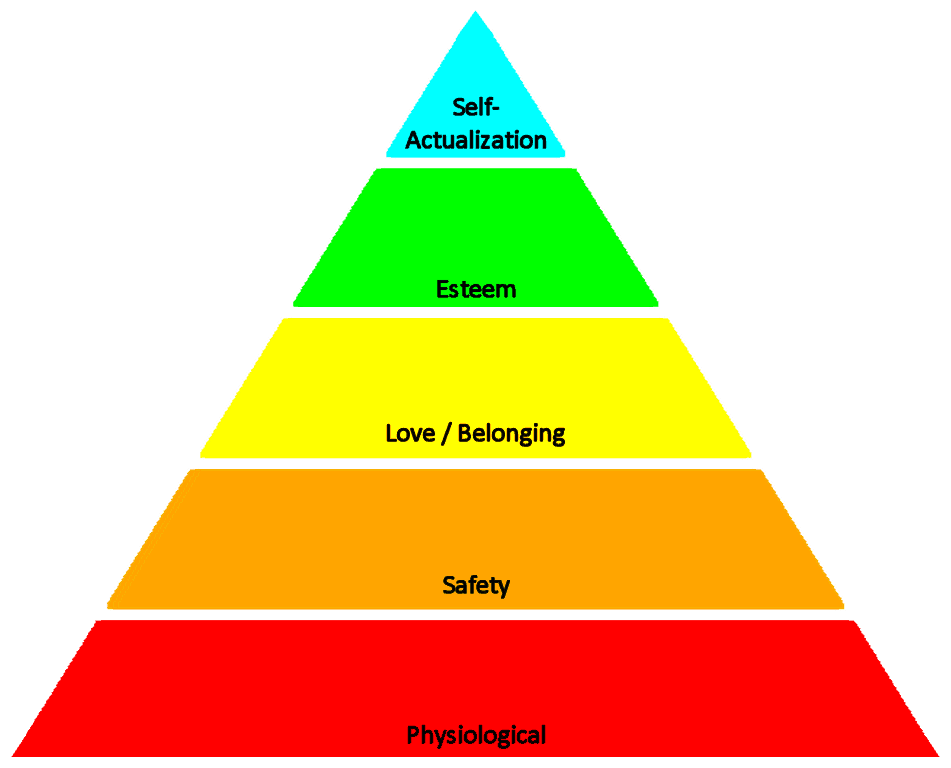The Key To Generating And Maintaining Motivation
Introduction
Do you want to be:
- richer?
- in better shape?
- build an amazing business?
- able to improve your relationships?
- living in an amazing house?
All of these goals are achievable – none of them is beyond your reach.
And you know what?
You probably already know how to achieve most of them, and you probably already have the skills, the knowledge, and the expertise.
And sure, you could read a book on each of these topics. You could read a book on how to get into great shape, and you could read another on how to build a business, and so on.
Chances are you would just be procrastinating. Chances are you’re just spinning your wheels rather than getting down to the actual hard work you know you’re really supposed to be doing.
You don’t have a problem with how.
And you don’t have a problem with what.
The issue is with just actually doing the things you’re meant to be doing. It’s:
- sticking to that diet plan
- saving that money instead of spending it on little things
- approaching clients to offer your hard work
The problem for most of us is that we just lack the motivation that we need in order to start on a new project.
Even if we start out well, we often end up flagging and giving up after not long.
So how do you get around this problem? How do you maintain motivation and drive? How do you stay disciplined and focused?
This is the ultimate example of “teach a man to fish”, because you’re not just learning the steps you need to take to accomplish something; you’re learning the very “stuff” that accomplishment is made of.
With true grit, determination, and willpower, you can accomplish literally anything that you put your mind to.
In this report, you will learn to fish. You will learn to dig deeper than ever before, whether it is to complete a workout, write the next great American novel, or create your own business.
Once you can commit yourself 100% to a given task, who knows what you can accomplish!
Why Motivation Is Key To Everything
Sounds grim doesn’t it? Grit and determination are not exactly normally spoken in the same breath as “fun” or “relaxation”!
Actually though, once you get your motivation and your discipline sorted, you will find that you have more time to enjoy yourself or to relax with family.
That’s because you’ll be able to work more quickly and efficiently, and you’ll be able to work towards the goals that actually interest you.
I have a real issue with people who say that in order to be successful you need to sacrifice time with family and friends. It bothers me when people say they can’t be in a relationship because they need to “focus on their career”.
The reason this bothers me, is that I 100% believe (and know) that you can have it both ways. You can work extremely hard on a project you are passionate about and be extremely successful doing so.
At the same time though, you can still find time to spend with friends and family. You can still find time to relax on the sofa and watch TV. You just have to work HARD and work SMART – and then STOP.
In this report, you’ll learn how to do all of that.
And with this kind of motivation and mental toughness will come all kinds of additional benefits. Benefits you can’t even believe.
Firstly, you’ll find that you’re more resilient to things that happen in your life. When you get bad news, you will be able to take it in your stride, adapt, and carry on.
When you have more determination, you’ll be able to improve all your skills through intense learning, analysis, and repetition.
When you have motivation, you’ll be cognitively faster because you’ll be able to focus on the task in hand without distraction.
And you’ll be able to get out of bed on time in the morning. Clear the kitchen at the start of each day. And bite your tongue in an argument because you aren’t a slave to your emotions (resulting in many hurt feelings prevented).
This will be your superpower. It will change EVERYTHING for you. And in this report, you’re going to learn how to tap into it.
Emotions Rule Motivation
Here’s something that shop owners and sellers know about human psychology: our decisions are driven by emotion and NOT by logic.
That is to say, that you will buy something not because it is great value, because you need it, or even because you particularly like it.
You buy something because:
- you get excited by the cool packaging
- you think the materials used look elegant
- imagine how cool or elegant you’ll look
- it’s something other people have
- you’ve had a hard day and you need a treat
- you are worried that it will be out of stock if you hesitate.
Take a look at any marketing materials and you’ll see that this is true.
The fact of the matter is that we are ruled by our emotions, which you can think of as being a compass for the thing our body thinks we should be doing.
The problem?
Our body is hard-wired to survive in the wild outdoors. As far as evolution is concerned, our main challenges are finding food, staying warm and dry, and procreating. We want to belong to a strong social group, and we want to be respected by others.
These core emotions can be roughly arranged according to Maslow’s hierarchy of needs, but the point is that our thoughts stem from our emotions.

And those emotions typically stem from our physiology and environment.
For proof of this, consider what happens when you get “hangry”.
When you become hungry, this will make you grumpy, irritable, and stressed – and this can often lead to arguments, mistakes, and other problems.
So, what’s actually going on here?
Well first, the lack of food in your system causes your body to release large amounts of cortisol, while serotonin levels drop.
That heightened cortisol leaves you jittery and anxious, and it is that hormone that causes your thoughts to become stressed and irritable.
Why?
Because in the wild, that hunger would be extremely dangerous, and it would be highly important that you seek out food – even if it meant competing with other people to get it.
You’ll now find yourself worrying about your boss firing you, you’ll think about all the things your partner has done recently to irritate you, and the mess on the side in the kitchen is going to really annoy you.
Your thoughts will now begin to race, and you’ll find yourself struggling to concentrate on anything.
You’re looking for danger, you’re looking for problems, and you’re tired.
You think you’re angry because your boss / partner / housemate is an idiot. But you’re actually angry because you’re hungry.
What Does This Have Do Do With Motivation?
So, what does this have to do with motivation and discipline, and why does it matter?
The problem is that if you now try to get work done, if you now try to focus, then you are going to find it extremely difficult to do so.
Consciously, you want to work on your project and get work done – but unconsciously you’re just looking for food!
There are countless other examples of this.
What if you’re tired? What if you’re cold? Or what if you’re stressed about something that you said to a friend last week?
In these scenarios, the hormones and neurotransmitters running through your body are going to make it very difficult for you to focus on what you need to focus on.
Motivation then, is the ability to overcome that emotional drive to focus on what you need to.
The Problem With Dull And Dry Work
What happens when you aren’t hungry? When you aren’t scared or stressed? When the temperature and your energy levels are just right?
That’s the point at which you begin to focus on the things that you need to do to be successful: that’s the point where your motivation actually comes through.
Remember that hierarchy of needs?
It looks like this:
- Self-Actualization
- Esteem
- Love and Belonging
- Safety Needs
- Physiological Needs
This list shows us the order in which our “needs” must be met, where the bottom item (physiological needs) takes absolute priority over all else. After that, you’ll look for shelter.
Ever noticed how you don’t struggle with motivation to get up and go to work in the morning?
That’s because you know that if you don’t go, then you won’t be able to afford to eat, because you’ll get fired.
That creates an emotional response (stress), which drives you up and out of bed.
And it works nearly every time, unless you’re so sick that you’re too unwell to go.
Once you’ve finished work, you tend to spend time with your family (love and belonging), or perhaps hanging out with friends / dating, and you tend to look for esteem by buying nice clothes or by trying to advance your career.
Self-actualization is everything else. This is the feeling of fulfilment that comes from having a goal or a passion. It is self-improvement. It is “the desire to be the most that one can be”.
But you can’t be the most that one can be if you’re starving to death, or if nobody loves you.
That’s why this hierarchy must be structured from bottom to top.
You need to satisfy your most base desires and needs before you can start looking after the soul.
The emotional drive to eat will always be stronger than the emotional drive to diet. The emotional drive to be warm and safe will always be stronger than the emotional drive to workout. And the emotional drive to hang out with friends will always be stronger than the emotional drive to go to work.
But, it also just so happens that the items at the top of the pyramid are also the ones that bring the most lasting contentment and happiness.
And this is why so many of us struggle with our motivation – we struggle to tell our bodies that no, today comfort and hunger take a back seat to the things we really need to get done to be happy.
Hijacking Our Motivation
To improve your chances of going after those long term goals, you need to hijack your body’s own motivation system. You need to force it to sometimes turn the hierarchy of needs on its head.
How do you do that?

Sorry - The Rest Of This Article Is Only For Self Help Nirvana Members
JOIN NOW FOR ONLY $7Self Help Nirvana is an online community for everybody whose goal is personal improvement and development. Become a Self Help Nirvana member today and get access to everything here at SelfHelpNirvana.com!
Already a member? Sign in.






